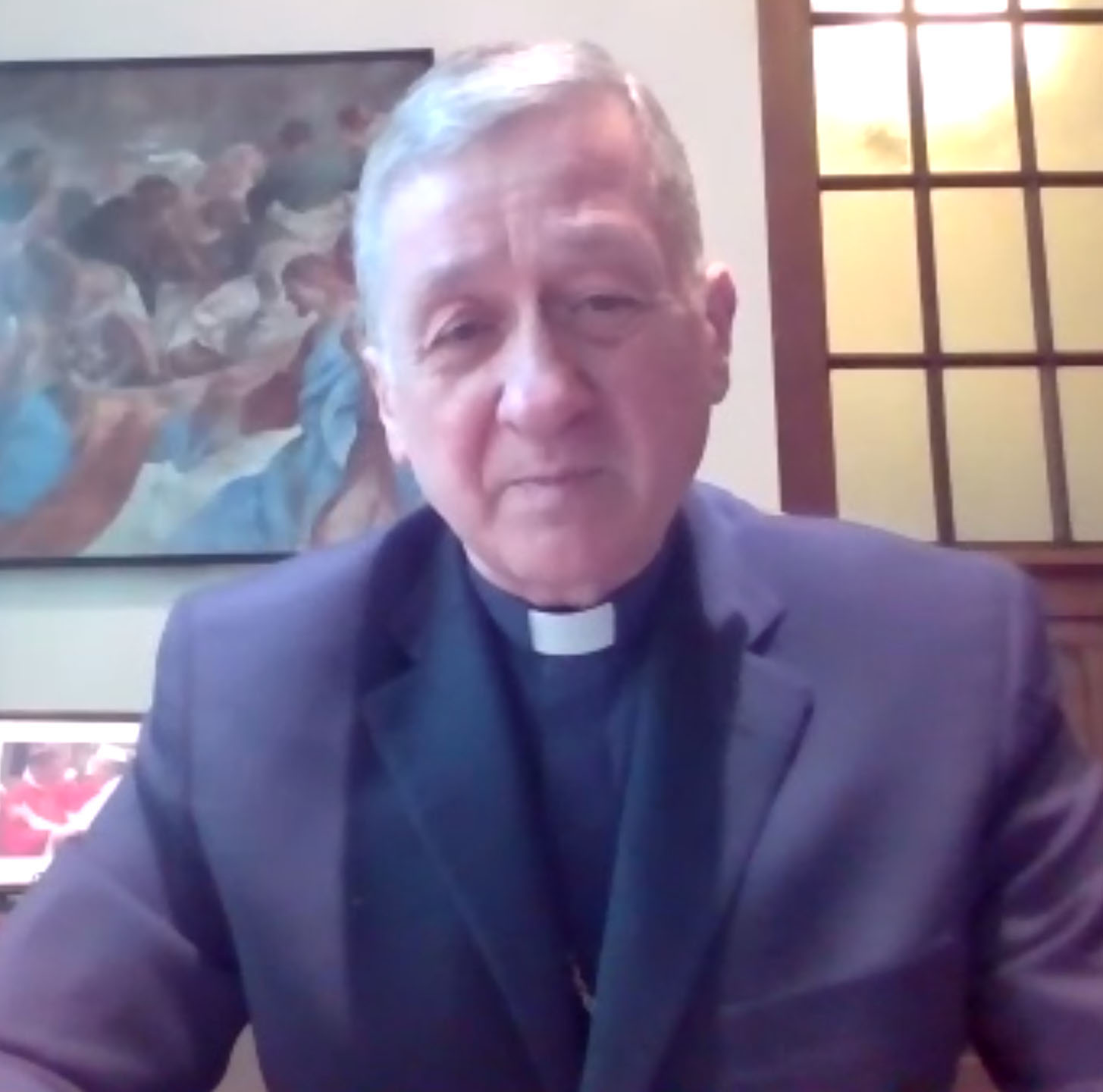Counseling faculty member Deanna Burgess in the College of Education says high school students “don’t sugarcoat things much.” As a result, some teachers are surprised with their students’ candor and lived experiences, especially around racism.
“It can be difficult to hold space for such heavy experiences that students share,” Burgess says.
To help facilitate these conversations, students and teachers from 25 high schools in the Archdiocese of Chicago have come together with DePaul’s College of Education to address racial inequity. The Office of Catholic Schools launched the project in response to the 2020 murder of George Floyd and its aftermath. In late April, the students presented their ideas for building racial equality along with each school’s commitment to racial justice to Cardinal Blase J. Cupich, archbishop of Chicago.
 Cardinal Blase J. Cupich, archbishop of Chicago, listens as students present their ideas for building racial equity in their Catholic high schools. (Image courtesy of Office of Innovative Professional Learning)
Cardinal Blase J. Cupich, archbishop of Chicago, listens as students present their ideas for building racial equity in their Catholic high schools. (Image courtesy of Office of Innovative Professional Learning)“Racism is not something one is born with, it’s taught. We need to do everything possible to break that cycle. Schools can be an important way to do so,” Cardinal Cupich says. “I am edified by the students’ efforts in charting a path forward to break boundaries and to open their hearts for hard conversations and healing.”
DePaul faculty led the equity workshops for the students to examine racism in light of Catholic social teachings. In addition to Burgess, facilitators from DePaul faculty included Donna Kiel, Camille Auguste and Tina Curry. The program, developed by DePaul, is RISE: Catholic Students RISE for Racial Equity. RISE stands for the process of reflection, inquiry, self-awareness and empathy.
“Working with the Catholic high school students on racial equity was an inspirational and transformational experience. The students are models of faith, hope, inclusion and social justice,” says Kiel, who teaches educational leadership. Throughout the pandemic, the College of Education has offered training and support to teachers.
The students and faculty advisors from each participating Catholic high school began meeting online with DePaul faculty in February to come up with solutions to problems at their respective schools. When the larger group gathered, there were more than 300 students, teachers and DePaul faculty on the Zoom. During the meetings, each school was asked to create a vision for racial justice in their school. These exercises guided the development of individual commitments to racial justice and equity.
As
Chicago Catholic reports, students made recommendations around three themes: curriculum and culture, diversity among faculty and staff, and safe spaces for students to engage in conversations about race, culture and social justice. For example, Nazareth high school made recommendations to “increase education about racism, microaggressions and the impact of insensitive language, jokes and comments.” Burgess, an assistant professor, led several of the workshops in collaboration with Auguste, Curry, and Kiel. As a focus of her research and teaching, Burgess works with youth, teachers and counselors to examine ways that social constructs shape our lives. This starts by acknowledging that everyone’s lived experiences are different, she says.
“The students are so insightful, and unfortunately many students have a lot of experiences from their own lives that highlight racial inequity,” Burgess says. "The hope is that we can continue to foster opportunities for students to share their insights and to inform decision-making processes that impact their own educational experience."
The generation of students who are now in high school seem more engaged in advocacy, Burgess notes. Across all schools, students arrived at wanting to build a strong sense of community. “Students’ end goals were to build a better community, and one that's reflective of our Catholic values as well.” For more, visit the Office of Innovative Professional Learning online.